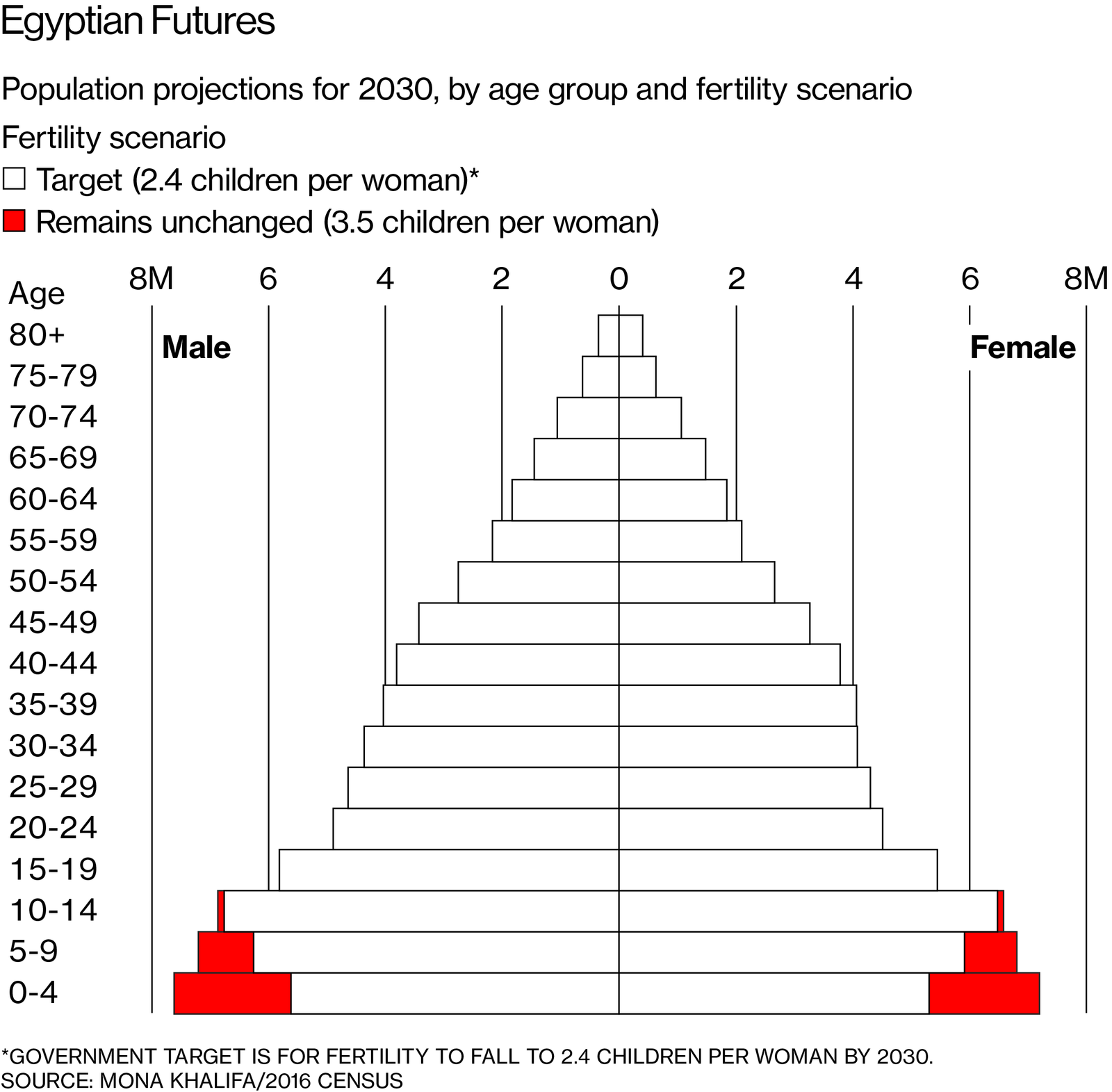High birth rates may be the most lasting unforeseen consequences post-2011

The 700k jobs figure Lall quotes is probably low: The riskiest legacy of the Arab Spring may be the “baby boom” that ensued in Egypt, Mark Champion and Tarek El Tablawy write in a remarkably on point piece for Bloomberg. “Higher birth rates may prove the most lasting of many unforeseen consequences of Egypt’s Arab Spring … The country added about 11 mn people—the population of Greece—in a span of just seven years, as fertility surged to 3.5 children per woman rather than continuing its gradual decline to the government’s target of 2.1.” The recent baby boom guarantees rising numbers of job seekers for at least a generation to come, they write. Deputy Health Minister Tarek Tawfik says the increased birth rate is “scary,” noting that there were 10.3 mn Egyptians under the age of four in 2016, up from 8.8 mn in 2008.
The issue began before the revolution in 2011, Tawfik says. He attributes the trigger for a the rise in birth rates to 2005, when USAID began winding down generous funding for family planning programs in Egypt. “The decades-long decline in the fertility rate stalled at a low of 3.0 children per woman, in 2008,” Champion and El Tablawy note. They say that Egypt now “risks moving further into the category of youth-heavy nations that are less likely to democratize and more prone to authoritarian rule and political violence,” citing research on the topic.